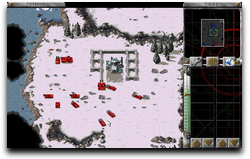 Rhythm games are the new FPS for a lot of gamers, a broader audience of gamers, and the market is thriving and demanding new titles. Harmonix and Activision are at the front of the battle with Konami following a bit behind but still contending (we think) very soon.
Rhythm games are the new FPS for a lot of gamers, a broader audience of gamers, and the market is thriving and demanding new titles. Harmonix and Activision are at the front of the battle with Konami following a bit behind but still contending (we think) very soon.
Each company plans to up each other with cooler instruments, tighter controls and new in-game options and multi-player fancies. It’s a business and each competitor tries to gain a lead by whatever means needed to win… or do they?
Harmonix stops short when it comes to purchasing exclusive rights to music artists, for now at least. Harmonix’s Eric Brosious went on blogger record saying, “We prefer not to sign exclusive deals with artists because while it seems like the competitive “business” thing to do, in the long run, it’s really not good for anyone. We think we should be working to get more music out to more people.” (kotaku)
As Marky Mark once said, we need “Music for the people” not for in-game exclusives making us choose between Guitar Hero and Rock Band titles. We’ve seen what EA has done to the football franchise by taking control of the NFL roster, money talks and the best game doesn’t always win.
If Activision decides to buy up a ton of great exclusive content and you’re a rock band gamer, you’ll lose out in a ton of great content. For some gamers, that might mean losing out in some artists you’ve never heard before which also means the artist loses out in new fans. We’ve seen younger gamers fall in love with the sounds of Boston and The Police, bands famous way before the birth of many of the Rock Band fan base.
You can tell Harmonix is a development group with roots in music while Activision is a development group with their roots in business. While exclusive access brings you an advantage, in terms of broadening the culture of music, it does very little. Harmonix may be in the right but will that matter in the end when business deals hit the table?
p.s. sorry about the Marky Mark reference, but it had to be done. Bringing out a bit of my own childhood there…

 If you’re a Netflix subscriber and own an Xbox 360 you’ll be able to watch the entire library of Netflix programming on your console. This deal, recently announced at E3, puts Microsoft in a great way in terms of being the console to buy for multi-media entertainment against its Rival Sony.
If you’re a Netflix subscriber and own an Xbox 360 you’ll be able to watch the entire library of Netflix programming on your console. This deal, recently announced at E3, puts Microsoft in a great way in terms of being the console to buy for multi-media entertainment against its Rival Sony. It is the 13th anniversary of the Command & Conquer Series, Red Alert, and Electronic Arts is giving away the original C&C: Red Alert as a
It is the 13th anniversary of the Command & Conquer Series, Red Alert, and Electronic Arts is giving away the original C&C: Red Alert as a